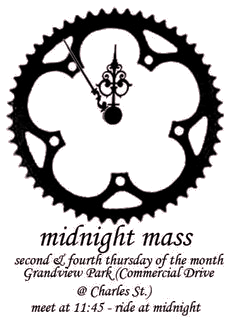How propaganda poisons the mind - and our discourse
By Glenn Greenwald
Last week, on January 3, The Guardian published a scathing Op-Ed by James Richardson blaming WikiLeaks for endangering the life of Morgan Tsvangirai, the leader of the democratic opposition in Zimbabwe. Richardson -- a GOP operative, contributor to RedState.com, and a for-hire corporate spokesman -- pointed to a cable published by WikiLeaks in which American diplomats revealed that Tsvangirai, while publicly opposing American sanctions on his country, had privately urged their continuation as a means of weakening the Mugabe regime: an act likely to be deemed to be treasonous in that country, for obvious reasons. By publishing this cable, "WikiLeaks may have committed its own collateral murder," Richardson wrote. He added: "WikiLeaks ought to leave international relations to those who understand it – at least to those who understand the value of a life."
This accusation against WikiLeaks was repeated far and wide. In The Wall Street Journal, Jamie Kirchick -- the long-time assistant of The New Republic's Marty Peretz -- wrote under this headline: "Julian Assange's reckless behavior could cost Zimbabwe's leading democrat his life." Kirchick explained that "the crusading 'anti-secrecy' website released a diplomatic cable from the U.S. Embassy in Harare" which exposed Tsvangirai's support for sanctions. As "a result of the WikiLeaks revelations," Kirchick wrote, the reform leader would likely be charged with treason, and "Mr. Tsvangirai will have someone additional to blame: Julian Assange of WikiLeaks." The Atlantic's Chris Albon, in his piece entitled "How WikiLeaks Just Set Back Democracy in Zimbabwe," echoed the same accusation, claiming "WikiLeaks released [this cable] to the world" and that Assange has thus "provided a tyrant with the ammunition to wound, and perhaps kill, any chance for multiparty democracy." Numerous other outlets predictably mimicked these claims.
There was just one small problem with all of this: it was totally false. It wasn't WikiLeaks which chose that cable to be placed into the public domain, nor was it WikiLeaks which first published it. It was The Guardian that did that. In early December, that newspaper -- not WikiLeaks -- selected and then published the cable in question.
Last week, on January 3, The Guardian published a scathing Op-Ed by James Richardson blaming WikiLeaks for endangering the life of Morgan Tsvangirai, the leader of the democratic opposition in Zimbabwe. Richardson -- a GOP operative, contributor to RedState.com, and a for-hire corporate spokesman -- pointed to a cable published by WikiLeaks in which American diplomats revealed that Tsvangirai, while publicly opposing American sanctions on his country, had privately urged their continuation as a means of weakening the Mugabe regime: an act likely to be deemed to be treasonous in that country, for obvious reasons. By publishing this cable, "WikiLeaks may have committed its own collateral murder," Richardson wrote. He added: "WikiLeaks ought to leave international relations to those who understand it – at least to those who understand the value of a life."
This accusation against WikiLeaks was repeated far and wide. In The Wall Street Journal, Jamie Kirchick -- the long-time assistant of The New Republic's Marty Peretz -- wrote under this headline: "Julian Assange's reckless behavior could cost Zimbabwe's leading democrat his life." Kirchick explained that "the crusading 'anti-secrecy' website released a diplomatic cable from the U.S. Embassy in Harare" which exposed Tsvangirai's support for sanctions. As "a result of the WikiLeaks revelations," Kirchick wrote, the reform leader would likely be charged with treason, and "Mr. Tsvangirai will have someone additional to blame: Julian Assange of WikiLeaks." The Atlantic's Chris Albon, in his piece entitled "How WikiLeaks Just Set Back Democracy in Zimbabwe," echoed the same accusation, claiming "WikiLeaks released [this cable] to the world" and that Assange has thus "provided a tyrant with the ammunition to wound, and perhaps kill, any chance for multiparty democracy." Numerous other outlets predictably mimicked these claims.
There was just one small problem with all of this: it was totally false. It wasn't WikiLeaks which chose that cable to be placed into the public domain, nor was it WikiLeaks which first published it. It was The Guardian that did that. In early December, that newspaper -- not WikiLeaks -- selected and then published the cable in question.
- Read the rest of How propaganda poisons the mind - and our discourse...
Labels: propaganda, wikileaks
posted by Rusl Bicycle @ 1/13/2011 12:43:00 am
![]()
![]()
 Vancouver Critical Mass
Vancouver Critical Mass











0 Comments:
Post a Comment
Please be respectful and constructive. If you want to vent or hate do it somewhere else. Violent, threatening and abusive comments will be removed. Please read other posts and discussion to avoid duplicate questions.
<< Home